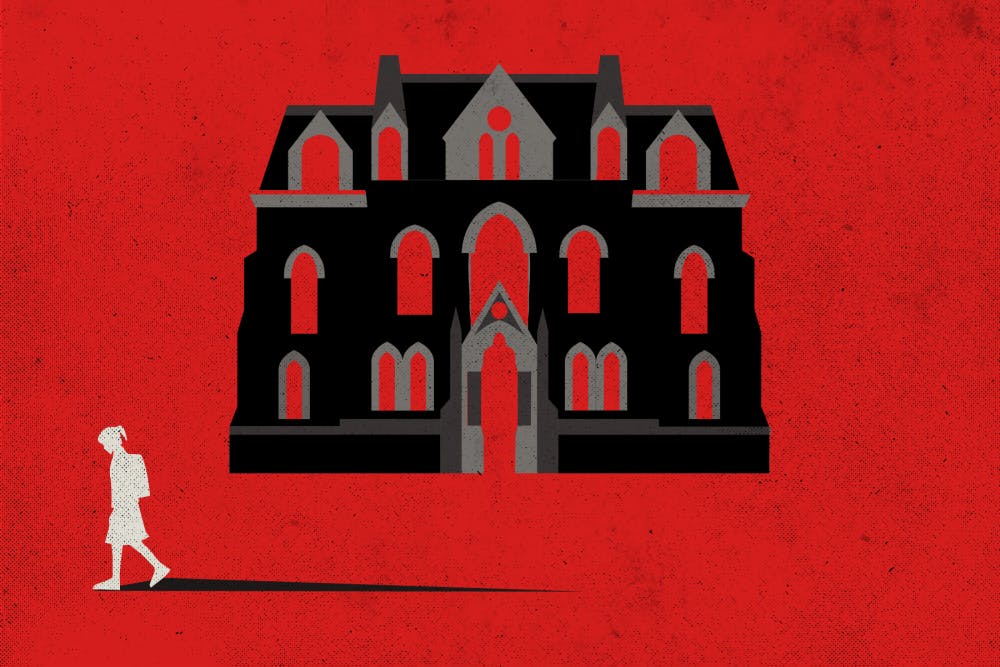The Association of American Universities released the results of the 2019 Campus Climate Survey on Sexual Assault and Sexual Misconduct on Tuesday. In 2019, 25.9% of female undergraduate students and 7.3% of male undergraduates reported that they experienced unwanted sexual contact since entering college at Penn, a rate that has not changed in a statistically significant way since the last time the survey was conducted in 2015.
Penn administrators can give no excuse for their failure to protect the several thousand students that are assaulted every year on this campus. Instead of offering up a mea culpa and a concrete plan of action, they said they were “troubled” by the findings of the survey, presenting no strategy to address these issues. Penn President Amy Gutmann must commit to addressing these issues with specific steps, quantifiable goals, and serious collaboration with stakeholders and student groups.
Over the last four years, Penn has taken some steps to address the prevalence of sexual assault on campus. That said, the “Task Force on a Safe and Responsible Campus Community” was widely criticized for worrying more about illicit drinking than Penn’s culture of predation and violence. This initiative is a far cry from the “radical change on campus among administrators and students” that the Penn Association for Gender Equity called for in response to the recently released data.
Gutmann, Provost Wendell Pritchett, and the host of other administrators who are responsible for the well-being of the Penn community must explain what exactly is going to change and what steps they will take to protect its students. If they don’t, the Penn community will be forced to suffer through another four years of inaction and failure, and if the survey continues in 2023, the results will belie the same dismal statistics.
If Penn’s administration cannot come up with a new, effective plan to tackle this admittedly difficult and complex issue, it may be time for them to step aside and give someone else a shot.
A good step to address these issues is to engage and listen to groups like PAGE, Abuse and Sexual Assault Prevention, and Men Against Rape and Sexual Assault. Another good place for the University to start could be to impose stricter punishments on fraternities that fail to attend allegedly mandatory anti-violence training programs. The University could also reform its policies that do not protect students who report misconduct or assault from retribution.
The sad reality is that Penn is not alone in this situation. In fact, the rate at which female undergraduates were assaulted at Penn is the median among all colleges that participated in the survey. The fact that the problem exists at other schools is no excuse, though, for Penn's inability to solve the problem on its own campus.
The administration must immediately outline a plan of action to address the epidemic that is sexual assault on Penn's campus. Administrators must take responsibility for the fact that Penn's efforts thus far have failed to show concrete results. The entire Penn community, like Gutmann and Pritchett, are troubled by the results of the survey. In an email to the community in 2015, when the original survey was released, Gutmann similarly found the results “deeply troubling.”
SEE MORE FROM THE DAILY PENNSYLVANIAN EDITORIAL BOARD:
Penn wants more students living on campus. Lowering rent is the way to do it.
It’s time to stop being "troubled," and start demonstrating some leadership.
Editorials represent the majority view of members of The Daily Pennsylvanian, Inc. Editorial Board, which meets regularly to discuss issues relevant to Penn's campus. Participants in these meetings are not involved in the reporting of articles on related topics.
SEE MORE FROM THE DAILY PENNSYLVANIAN EDITORIAL BOARD:
Penn wants more students living on campus. Lowering rent is the way to do it.









